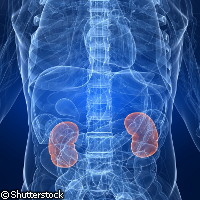Europeans set to crack chronic kidney disease puzzle
Chronic kidney disease (CKD) is a silent disease that affects 1 in 10 Europeans. Despite research into CKD, early-stage diagnosis and personalised treatment need improvement. Another burning issue is the lack of information on the pathophysiology of the disease. Enter the SYSKID ('Systems biology towards novel chronic kidney disease diagnosis and treatment') project, which is determined to resolve these issues. The 60-month project is supported under the Health Theme of the Seventh Framework Programme (FP7) to the tune of EUR 11.8 million. CKD is a serious disease that adversely affects a patient's well-being by triggering end-stage renal disease, cardiovascular complications and bone metabolism disorders. The SYSKID project partners say they will identify the molecular and cellular mechanisms responsible for the disease's development, and will combine this information with clinical risk factors, which in turn will shed light on the biomarkers of this disease. The researchers note that the biomarkers will give the team the information they need to conduct preclinical studies into new treatment methods to stop the progression of CKD. The team will also obtain the materials required to develop and evaluate tools for early-stage diagnosis, and to monitor prognosis and therapy. Integration of molecular and cellular biology, computational biology, statistics and epidemiology will support the team's efforts to construct a 'Systems Biology' framework for CKD. Adding to this effort is the researchers' clinical expertise and use of an extensive CKD sample and clinical data pool. Contributing to the success of the SYSKID team consisting of 25 research groups, is a high-level advisory board covering science, product development and the patients' perspective. The SYSKID researchers point out that most people suffering from CKD are in the early stages of the disease. Early diagnosis can help nip the problem in the bud, especially by keeping dialysis and kidney transplantation at bay, but more advanced methods are needed. According to the SYSKID partners, CKD is often caused by diabetes and hypertension and may be linked to generalised atherosclerosis. Cases of diabetes in Europe, in particular, have swelled in recent years: around 7% of Europeans suffer from this debilitating disease. The rise in diabetes and hypertension will impact CKD as well, the researchers say, adding that the number of related deaths will also rise. Early diagnosis and prevention are crucial for fighting this disease. 'Following a start-of-the-art Systems Biology approach, SYSKID will establish a comprehensive picture of the consequences of diabetes and hypertension on kidney function,' explains Dr Bernd Mayer of the Austria-based company emergentec biodevelopment GmbH, which is the coordinating body of SYSKID. 'We will focus on the early stage of chronic kidney disease and aim at identifying better strategies for prevention as well as novel diagnosis and therapy options to improve patients' quality of life.' SYSKID brings together 25 leading research groups from Austria, Belgium, Denmark, France, Germany, Hungary, Ireland, Israel, Italy, the Netherlands, Poland, Spain, Switzerland, the UK and the US.

